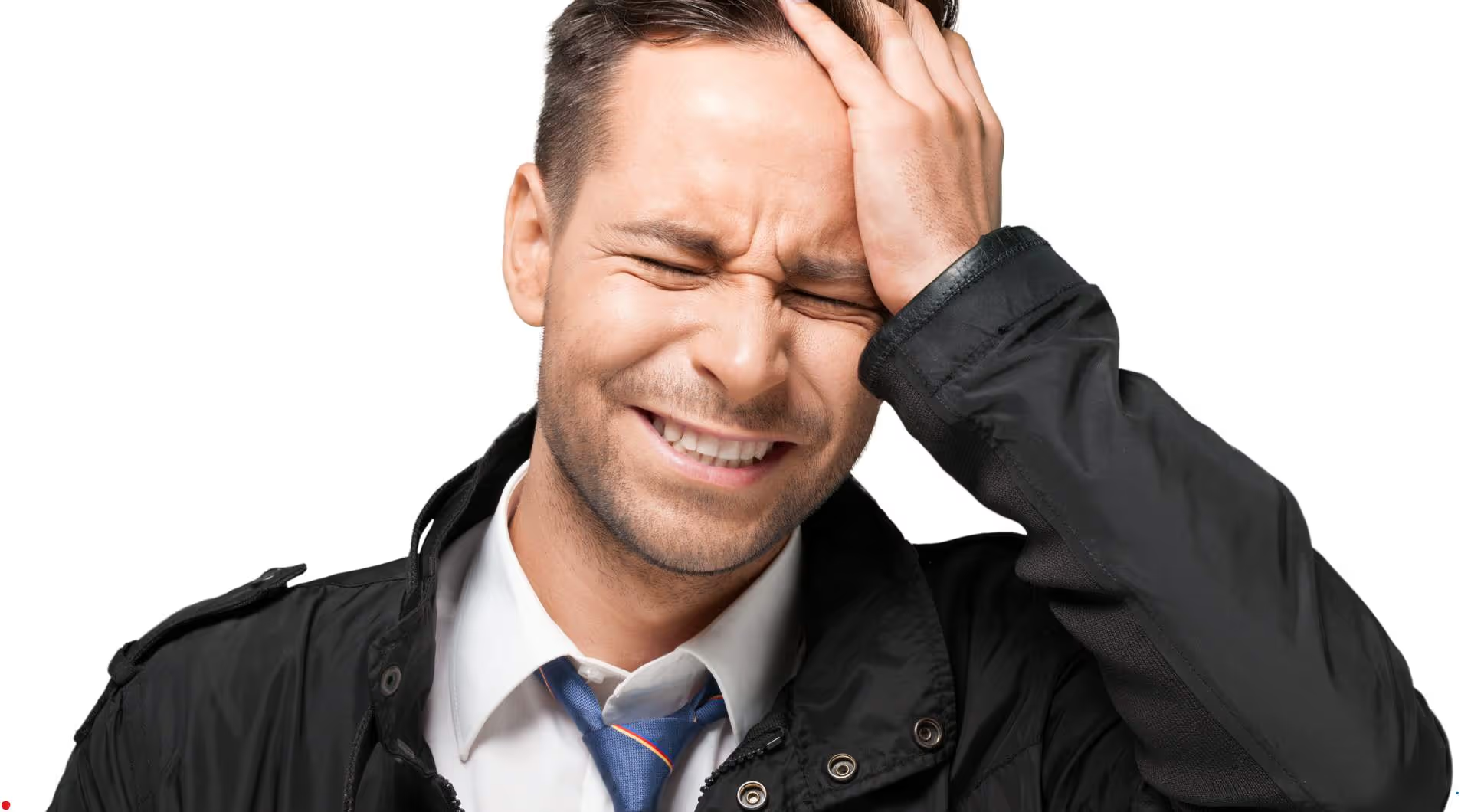Can Drinking Alcohol Cause a Seizure? Symptoms, Risks, and Prevention
.avif)
Seizures can be terrifying — both for the person experiencing them and for those watching it happen. If you're here trying to understand the link between alcohol and seizures, it's because you care about protecting yourself or someone you love, and that makes perfect sense.
The good news is, help is available, and with the right support, it’s possible to begin and continue your recovery journey safely, surrounded by professionals who understand how to manage and prevent alcohol-related seizures.
In this article, we’ll explore how alcohol can cause seizures, the symptoms to watch for, the risks involved — including withdrawal, dehydration, and delirium tremens — and what steps you can take to stay safe.
Table of Contents
- Can Alcohol Cause Seizures?
- 5 Types of Alcohol-Induced Seizures
- Commonly Asked Questions About Alcohol and Seizures
- Can Alcoholism Cause Seizures?
- Can Alcohol Withdrawal Cause Seizures?
- Dove Recovery: Comprehensive Alcohol Addiction Treatment in Columbus, Ohio
Yes, alcohol can indeed cause seizures, particularly during withdrawal after heavy or prolonged use.
While moderate alcohol consumption — one or two drinks — typically doesn't trigger seizures in most people, the risk increases significantly for individuals who suddenly stop drinking after chronic use. This is due to the brain's adaptation to alcohol's depressant effects; when alcohol intake ceases abruptly, the central nervous system becomes hyperexcitable, leading to withdrawal symptoms, including seizures.
These seizures often occur within 6 to 48 hours after the last drink and can be a serious medical emergency.
What Are the Symptoms of an Alcohol-Induced Seizure?
Alcohol-induced seizures, particularly those occurring during withdrawal, often present as generalized tonic-clonic seizures — previously known as "grand mal" seizures. These seizures typically begin with a sudden loss of consciousness, followed by the tonic phase, where muscles stiffen, causing the person to fall if standing.
This is succeeded by the clonic phase, characterized by rhythmic jerking of the limbs. The seizure usually lasts one to three minutes, after which the individual may experience confusion, fatigue, and muscle soreness — a period known as the postictal state.
Some individuals report experiencing an "aura" before the onset of a seizure. An aura can manifest as unusual sensations, such as visual disturbances, strange smells, or intense emotions, serving as a warning sign.

#1: Alcohol Withdrawal Seizures
Drinking heavily over time can increase the risk of seizures, especially when someone suddenly stops after becoming dependent on alcohol. Most alcohol-related seizures happen during withdrawal — not while drinking — and they typically occur within the first 12 to 48 hours after the last drink.
This happens because alcohol affects brain chemistry by enhancing the action of GABA, a neurotransmitter that calms brain activity. Over time, the brain adjusts by reducing its natural GABA activity, which is why many people become addicted to alcohol. When alcohol is suddenly removed, the brain becomes overly excitable due to the lack of GABA stimulation, making seizures more likely until the brain can rebalance itself.
#2: Alcohol-Induced Epilepsy
Several physiological processes can contribute to alcohol-induced epilepsy, particularly in people with a history of seizures or other underlying risk factors. The most significant factors related to binge drinking and excessive drinking are:
- It can lead to a significant drop in blood sugar levels (hypoglycemia), which is a known trigger for seizures.
- It can also slow or suppress breathing, resulting in reduced oxygen supply to the brain (hypoxia). This oxygen deprivation can damage brain tissue and increase the risk of both immediate and long-term seizures.
- It can overstimulate and then disrupt normal brain signaling, raising the likelihood of seizure activity.
- It also causes dehydration and disturbs the balance of essential electrolytes in the bloodstream, both critical for maintaining stable brain function. These imbalances can heighten the chances of a seizure occurring.

#3: Alcohol/Medication Interaction
Alcohol can interfere with many medications, and this is especially true for anti-seizure drugs. When alcohol is consumed while taking seizure medication, it can reduce the medication’s effectiveness or intensify its side effects. This can make it harder to control seizures and increase the risk of breakthrough episodes.
In some cases, alcohol can also alter how the body metabolizes the medication, either speeding it up or slowing it down, leading to unpredictable drug levels in the bloodstream.
#4: Hangover Seizures
Although hangovers aren’t a direct cause of seizures, they can create conditions in the body that make seizures more likely. One key factor is the delayed drop in blood sugar that happens after drinking.
This drop tends to occur around the same time hangover symptoms appear, which can make it seem like the hangover is the cause of the seizure. In reality, it’s the low blood sugar that increases the risk. Dehydration, another common hangover effect, may also contribute to seizure risk by upsetting the body’s fluid and electrolyte balance.
For individuals experiencing repeated hangovers or related health scares, seeking support through alcohol rehab can be an important step toward preventing future complications.
#5: Delirium Tremens Seizures
Delirium tremens (DTs) is a severe and potentially life-threatening complication of alcohol withdrawal that typically develops several days after a person stops drinking. It’s marked by intense symptoms such as confusion, hallucinations, agitation, irregular heart rate, and dangerously high body temperature.
While seizures can occur during DTs, they are not always present and are not required for a diagnosis. Alcohol withdrawal seizures often happen earlier in the withdrawal process and can occur on their own without progressing to delirium tremens.

Yes, alcohol can lead to seizures, especially during withdrawal after heavy or long-term use. While moderate drinking typically doesn’t cause seizures, suddenly stopping after chronic use can make the brain overly active, triggering withdrawal symptoms like seizures. These often occur within 6 to 48 hours after the last drink and should be treated as a medical emergency.
Can Dehydration Cause a Seizure?
Yes, dehydration can contribute to seizures, especially when it’s caused by heavy alcohol use. Since alcohol increases fluid loss through urine, i.e., it is a diuretic, it can lead to dehydration pretty easily. When the body becomes severely dehydrated, it can cause electrolyte imbalances, which are known to increase the risk of seizures.
During binge drinking or withdrawal, dehydration is even more likely to cause seizures if the person is vomiting, sweating, and not eating or drinking enough water while consuming alcohol.

Yes, alcohol withdrawal can cause seizures, and it’s one of the more serious complications associated with stopping alcohol suddenly after heavy or prolonged use. These seizures — known as withdrawal seizures — typically occur within 6 to 48 hours after the last drink and are most common in people with a history of chronic alcohol use.
When someone drinks heavily over time, their brain adjusts to the constant presence of alcohol, which acts as a depressant. If alcohol is suddenly removed, the brain becomes hyperactive, leading to symptoms like anxiety, tremors, and in some cases, seizures.
At Dove Recovery, expert teams help guide clients through withdrawal safely, offering outpatient programs and individualized treatment plans to support long-term healing.
Can You Die From an Alcohol-Induced Seizure?
An alcohol-induced seizure isn’t usually fatal on its own, but it can lead to serious injuries that could be deadly. Falling, hitting your head, or choking during a seizure are real risks, especially if you’re alone or unprepared. These injuries, not the seizure itself, are what can turn a dangerous episode into a life-threatening one.
Alcohol-related seizures are a serious warning sign and shouldn’t be ignored. Whether caused by withdrawal, dehydration, or other effects, they signal a need for professional help.
At Dove Recovery, located in Columbus, OH, we offer personalized treatment plans, including outpatient care, counseling, and partial hospitalization. With a success rate well above industry standards, this is the last call you’ll need to make — we’ll take it from here. Even if we can’t help directly, we’ll connect you with the right resources. Call or schedule online today — for yourself or someone you care about.

